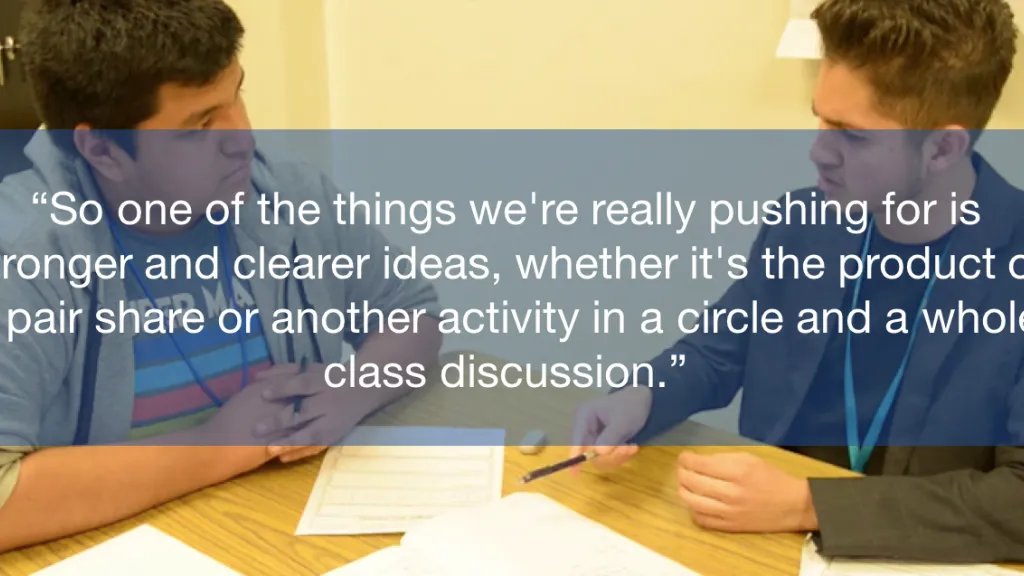Academic Conversations & 4 Tips to Engage English Learners


Academic Conversations & 4 Tips to Engage English Learners
English learners come to our classes with a variety of skills. While it may seem that some students have very few issues communicating with their peers, academic conversations usually take much longer to develop. Luckily, educators are equipped with a toolkit of activities that encourage students to practice speaking. But how do we go about implementing healthy routines and habits of mind around academic conversations that push diverse groups of learners to continually develop these skills?
We discussed this question in depth in our Highest Aspirations podcast interview with Jeff Zwiers. Zwiers is a senior researcher at the Stanford University Graduate School of Education and the Director of Professional Development for Understanding Language, a research and professional learning effort focused on improving instruction and assessment of English learners and other diverse students. He is also the author of Academic Conversations: Classroom Talk That Fosters Critical Thinking and Content Understandings, which provides clear ways to support students in developing authentic, meaningful conversation skills.
Throughout the conversation, Zwiers stressed the idea of encouraging students to “say more” by pushing each other to ask clarifying questions and support their answers. We pulled out four actionable tips from our conversation with Jeff Zwiers that you can implement right away to help your English learners engage in academic conversations:
Dismiss the notion that academic conversations must be overly formal.
Academic conversations don't always need to include highfalutin vocabulary, technical vocabulary, content area vocabulary, and/or complex grammar. Using any language to learn and to describe learning in academic contexts is a key step in any discipline.
Move away from the perceived safety of scripted conversations.
Scripted conversations can be used effectively as models, but teachers should be encouraged to quickly move away from them. When students are working in pairs and groups, encourage them to ask clarifying questions and support their ideas. Make this a routine so they get into the habit of pushing each other to say more.
Don’t underestimate the power of newcomers.
Drawing, gesturing, and acting things out count as strategies to express an academic idea. There is still a lot of language and cognitive skills that provide building blocks academic language. Newcomers and students with developing language skills need access to academic language.
Change your thinking around curriculum.
Building time for academic conversations doesn’t come at the expense of other parts of the curriculum. The ability to communicate effectively consistently comes up as one of the most important attributes for employers. If a student is not expected to clarify and support their ideas in school, how will they be able to do it in an interview?
Are you ready to put these tips into action? We can help!
- Listen to our full conversation with Jeff Zwiers on Highest Aspirations.
- Read the full transcription of the interview.
- Share your reactions, ideas, and expertise by leaving a comment below.
With over 60 episodes of Highest Aspirations released to date, you're sure to find something that helps you better serve your students. Find them here or wherever you get your podcasts.